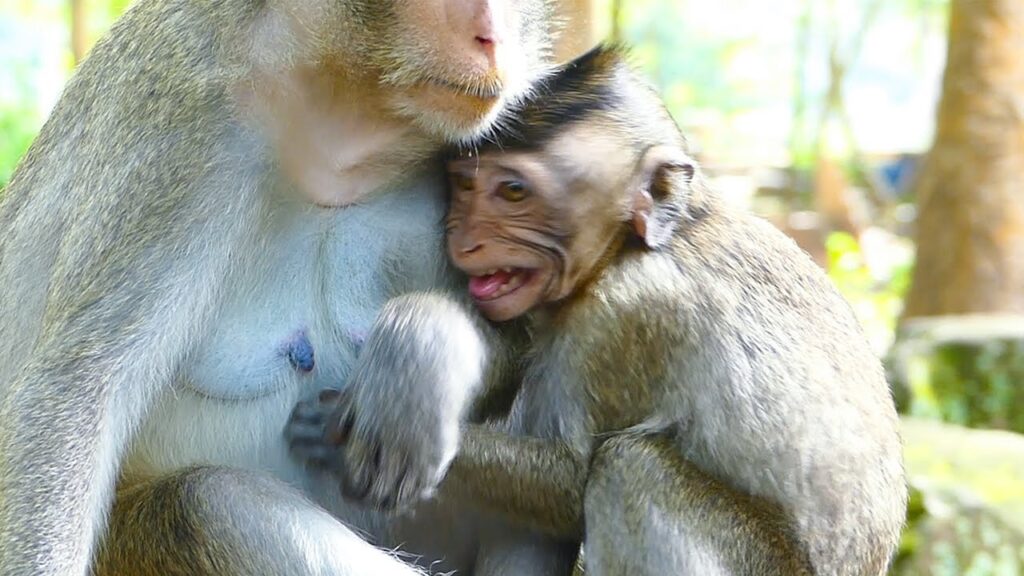
The forest was calm, but the peace quickly broke when little Baby Pepper began to cry loudly. His small body trembled as he clung to his mother, shaking in frustration and pain. He wanted only one thing—his mother’s milk. Yet, when he reached out and begged, his mother turned away, unwilling to give him what he longed for. The rejection hit him hard. His cries grew louder, echoing through the trees, his tiny face wet with tears and his body trembling as if seized by the weight of disappointment.
Baby Pepper’s cries were not just sounds of hunger; they were cries of heartbreak. He pushed his face into his mother’s fur, hugging her tightly, as if hoping that his closeness would change her mind. Each sob carried the raw emotion of need and helplessness. The ground beneath them seemed to vibrate with his painful wails, showing how badly he wanted comfort. His little arms wrapped tighter and tighter around her, shaking as though he could not bear to let go.
The mother sat quietly, sometimes shifting her gaze away, as if uncertain. Perhaps she was teaching him a lesson of patience, or maybe she was simply tired. But for Baby Pepper, this lesson felt cruel. His hunger burned in his belly, while his heart ached even more deeply.
Neighbors in the troop glanced over, watching the emotional scene unfold. Some young ones paused their play, sensing the intensity of Baby Pepper’s cries. A few adults looked on with sympathy, but none intervened.
It was a heartbreaking moment—the tiny baby’s desperate hug, the trembling cries that sounded almost like seizures, and the sharp pain of asking for love and nourishment, only to be refused. Baby Pepper’s struggle showed just how fragile and emotional early life can be.


